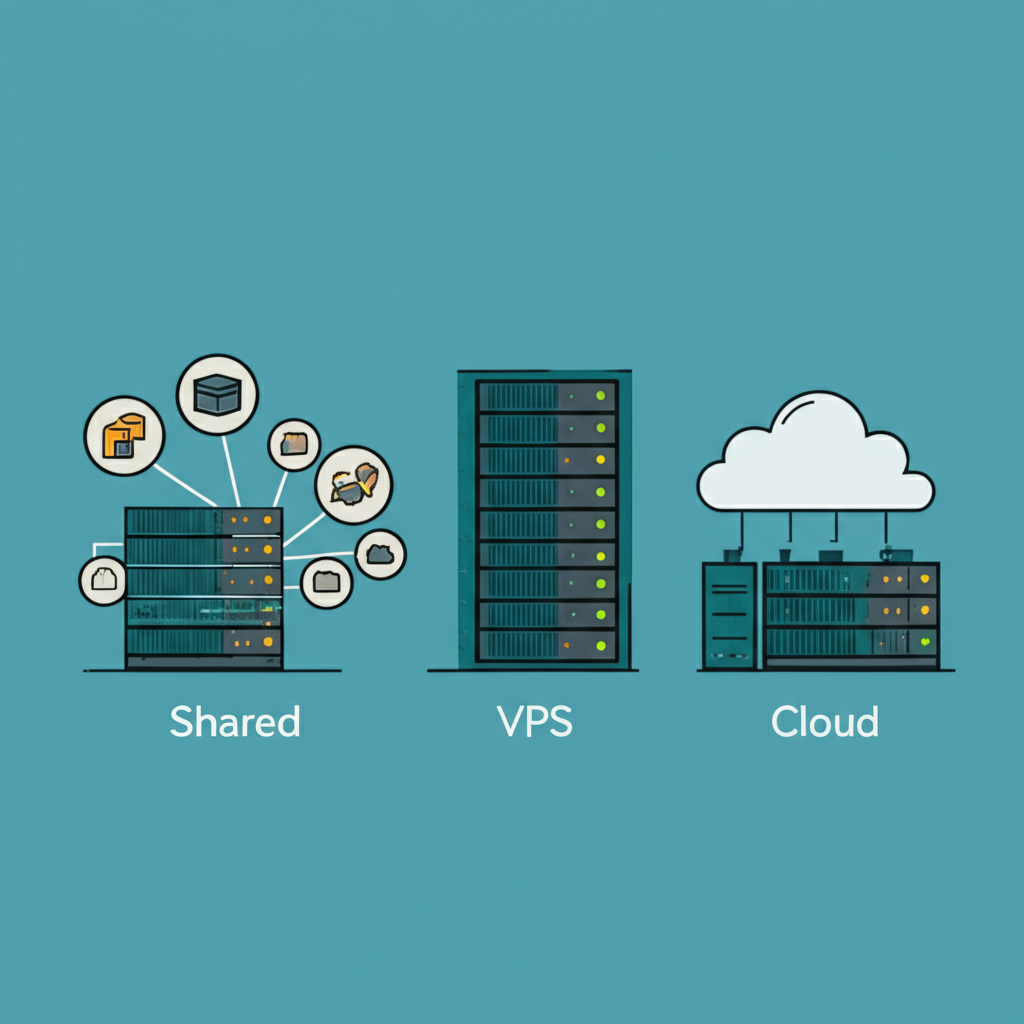- Understanding Your Web Hosting Options
- Web Hosting: Shared Hosting – A Budget-Friendly Starting Point
- Web Hosting: VPS Hosting – Increased Power and Control
- Web Hosting: Cloud Hosting – Ultimate Scalability and Reliability
- Choosing the Right Web Hosting for You
Web Hosting: Best Shared, VPS, or Cloud?
Web hosting is the foundation of any online presence. Choosing the right type of hosting — shared, VPS (Virtual Private Server), or cloud — is crucial for your website’s performance, security, and scalability. Making the right decision depends heavily on understanding your specific needs and resources. This article breaks down each hosting type, highlighting their pros, cons, and ideal use cases to help you make an informed choice.
Understanding Your Web Hosting Options
Before diving into the specifics of each hosting type, it’s important to understand the basic concepts. Think of it like renting property: shared hosting is an apartment building, VPS hosting is a townhouse, and cloud hosting is a sprawling estate.
Shared Hosting: This is the entry-level option where multiple websites share the resources of a single server. It’s the most affordable option, but also the most limited in terms of performance and control.
VPS Hosting: A step up from shared hosting, VPS provides a dedicated portion of a physical server, offering more control, customization, and resources. Think of it as having your own apartment within a building – you have more space and privacy, but still share some building infrastructure.
Cloud Hosting: This is the most flexible and scalable option. Your website utilizes resources from a network of interconnected servers, ensuring high availability and redundancy. Instead of a single building, imagine a whole city block, with resources pulled from different locations as needed.
Web Hosting: Shared Hosting – A Budget-Friendly Starting Point
Shared hosting is the go-to choice for beginners and websites with low traffic. It’s the most economical option, often costing just a few dollars per month. The setup is usually simple, and many providers offer user-friendly control panels and website builders.
Pros:
Affordability: Lowest cost option makes it ideal for budget-conscious users.
Ease of Use: Simplified setup and management, often with pre-installed software.
Beginner-Friendly: Requires minimal technical knowledge.
Cons:
Limited Resources: Performance can be affected by other websites on the same server.
Less Control: Limited access to server configurations and customization options.
Security Vulnerabilities: Shared environment can increase the risk of security breaches if other users have poorly secured sites.
Best for: Personal blogs, small portfolio websites, hobby sites, and startups with minimal traffic.
Web Hosting: VPS Hosting – Increased Power and Control
VPS hosting bridges the gap between shared hosting and dedicated servers. It offers more power, flexibility, and control without the high cost of a dedicated server. You get a dedicated portion of server resources, ensuring consistent performance regardless of other users’ activity.
Pros:
Enhanced Performance: Dedicated resources result in faster loading times and better stability.
Increased Control: Root access allows for greater server customization.
Improved Security: Isolated environment reduces the risk of security breaches from other users.
Scalability: Resources can be easily scaled up as your website grows.
Cons:
Higher Cost: More expensive than shared hosting.
Requires Technical Expertise: Managing a VPS requires some technical knowledge.
Best for: Growing businesses, e-commerce websites, websites with moderate to high traffic, and developers requiring more control over their server environment.
Web Hosting: Cloud Hosting – Ultimate Scalability and Reliability
Cloud hosting represents the cutting edge of web hosting technology. By leveraging a network of servers, cloud hosting offers unmatched scalability, reliability, and performance. Resources are automatically allocated and scaled based on demand, ensuring your website can handle traffic spikes without downtime.
Pros:
Unmatched Scalability: Resources can be scaled up or down instantly to meet fluctuating demands.
High Availability and Redundancy: Multiple servers ensure your website stays online even if one server fails.
Pay-As-You-Go Pricing: You only pay for the resources you use.
Enhanced Security: Robust security measures and data backups protect your website from threats and data loss.
Cons:
Cost Can Be Variable: While scalable, costs can increase significantly with high usage.
Management Complexity: Can be more complex to manage than shared or VPS hosting.
Best for: Large e-commerce platforms, high-traffic websites, businesses requiring maximum uptime and scalability, and applications requiring dynamic resource allocation.
Choosing the Right Web Hosting for You
Ultimately, the best web hosting solution depends on your individual needs. Consider the following factors when making your decision:
Website Traffic: Estimate your current and future traffic levels.
Budget: Determine how much you’re willing to spend on hosting.
Technical Expertise: Assess your level of technical knowledge and comfort with server management.
Security Requirements: Evaluate the level of security necessary for your website’s data and functionality.
* Scalability Needs: Consider how your website’s resource requirements might change over time.
By carefully evaluating these factors and understanding the strengths and weaknesses of each hosting type, you can choose the perfect web hosting solution to power your online presence and achieve your goals.











Leave a Reply